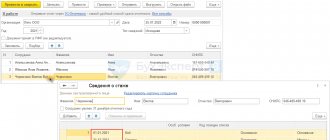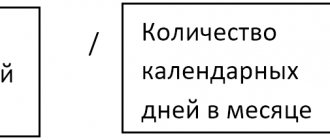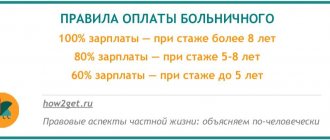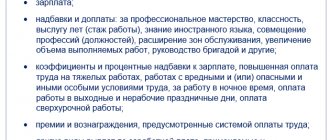Who and when will charge excise tax on petroleum products in 2022?
Excise tax on petroleum products in 2022
Article 181 of the Tax Code of the Russian Federation establishes the following list of petroleum products classified as excisable goods:
- motor gasoline;
- diesel fuel;
- motor oils for diesel and carburetor engines;
- aviation kerosene;
- middle distillates;
- straight-run gasoline;
- benzene, paraxylene, orthoxylene.
Excise tax on straight-run gasoline, benzene, paraxylene, orthoxylene is assessed by an organization that has a license to process petroleum products upon the occurrence of the first of the following events:
- obtaining straight-run gasoline, benzene, paraxylene, orthoxylene by purchasing it on the basis of an agreement with a Russian organization;
- posting of excisable goods for the purpose of subsequent processing.
Excise duty on motor gasoline, diesel fuel, and motor oils is charged:
- by the manufacturer when transferring excisable goods to a structural unit for subsequent processing, sale, or own use.
- a seller of petroleum products upon the transfer of excisable goods to a retail outlet (gas station) for sale.
Excise tax on aviation fuel is assessed by a person included in the Register of Civil Aviation Operators of the Russian Federation and holding an operator certificate (certificate) upon receipt of aviation kerosene in connection with the acquisition under ownership rights from a Russian organization.
Excise tax rates on petroleum products in 2022 – 2022
In June 2022, the Government agreed to a meeting with oil companies and reduced excise rates on gasoline and diesel fuel by 3,000 rubles. and 2,000 rub. respectively. Subjects of the petroleum products market, in turn, in response to fiscal relief, promised the authorities to restrain the market price of gasoline and diesel fuel for end consumers.
Based on Federal Law No. 301 dated August 3, 2019, for the period from July 1, 2019 to December 31, 2022, the following excise tax rates on gasoline and petroleum products were established:
| No. | Excise goods | Excise duty rate per 1 ton of excisable goods | |||
| from 01.07.2019 | 2019 | 2022 | 2022 | ||
| 1 | Class 5 motor gasoline | 13,100 rub. | 13,100 rub. | 13,100 rub. | RUR 13,624 |
| 2 | Motor gasoline that does not correspond to class 5 | RUR 8,213 | RUB 12,314 | RUB 12,752 | RUR 13,262 |
| 3 | Diesel fuel | RUR 5,665 | RUR 8,541 | RUR 8,835 | RUR 9,188 |
| 4 | Motor oils | 5,400 rub. | 5,400 rub. | RUR 5,616 | RUR 5,841 |
| 5 | Aviation kerosene | 2,800 rub. | 2,800 rub. | 2,800 rub. | 2,800 rub. |
| 6 | Middle distillates | RUR 6,665 | RUR 9,241 | RUR 9,535 | RUR 9,916 |
| 7 | Straight-run gasoline | 13,100 rub. | 13,100 rub. | 13,100 rub. | 13,100 rub. |
| 8 | Benzene, paraxylene, orthoxylene | 2,800 rub. | 2,800 rub. | 2,800 rub. | 2,800 rub. |
Eternal burden. Who really benefits from maintaining the transport tax?
When the authorities want to increase the excise tax on fuel, their favorite cover is the abolition of the transport tax. We didn’t go through this in 2013, and here we are again.
State Duma deputy Andrei Baryshev proposed abolishing the transport tax from 2022. This is the third initiative regarding the reform of this tax, expressed in the State Duma over the past summer, and one of the most tenacious ideas in the last ten years - similar proposals arise at the top every year, but the situation does not change. Ostensibly in our interests: if it is cancelled, we will have to pay even more. But is it?
How is transport tax calculated?
In Russia, cars, motorcycles, scooters, buses, tracked vehicles, sea, river and aircraft are subject to transport tax. Certain categories of vehicles are exempt from this tax. For example, these are cars equipped for use by disabled people, or agricultural machinery.
The tax rate depends on the engine power: the more powerful it is, the more you have to pay for each horsepower. For example, the base rate for passenger cars in Moscow starts at 12 rubles per liter. With. for engines up to 100 hp. With. and reaches 150 rubles for each.
How did they drown and burst?
“The complete replacement of the transport tax with revenues from the sale of fuel (excise tax) will lead to a more equitable distribution of the burden of covering the costs associated with the development of road infrastructure in the country,” writes United Russia deputy Baryshev in the explanatory note to the bill.
A more fair scheme would be to pay the state not for the fact of owning property, but for the intensity of its use.
“Spending” is a painful word in the age of coronavirus. Due to the pandemic, the incomes of citizens and companies have fallen sharply, personal transport is used less frequently than in previous years: partly due to the lockdown, partly again due to a drop in income. And please pay the transport tax.
In such a situation, it seems fairer to pay the state not for the fact of owning property, but for the intensity of its use: if you use your car more often, you buy more gasoline, and you pay more to the state. This is precisely the logic of abandoning the transport tax in favor of increasing the excise tax on fuel. Why is the government so clingy to the transport tax?
Is transport tax so important for the budget?
Transport tax is regional, that is, it goes to the regional budget. The region has the right to decide to whom to provide tax benefits; usually, for example, these are large families and/or individual entrepreneurs.
It is hardly possible to talk about a critically large loss in the event of the abolition of the tax.
Transport tax does not take up much space in the regional budget. Last year, the transport tax brought in 1.6% of all regional taxes, or 175 billion rubles, calculated Alexander Osin, an analyst at the department of trading operations on the Russian stock market at Freedom Finance. Of course, this figure differs from region to region, but, in any case, one can hardly talk about a critically large loss if the tax is abolished. Especially in conditions when revenues from excise taxes to local budgets are already growing today.
Excise taxes on fuel go to both the federal and regional budgets, and every year the proportion of distribution changes more and more in favor of regional budgets. This year, the regions will receive 66.6% of fuel excise taxes, in 2023 - already 91.6%, Osin gives an example. The share of excise taxes on fuel in regional budget revenues was about 6.75% last year, the analyst adds.
Schrödinger tax
Collectionability is a fundamental issue for making a decision on the abolition of transport tax. Surprisingly, there is no clear answer. The Ministry of Finance, criticizing the initiative of State Duma deputies, announced a good collection rate. According to the department, out of 179.6 billion rubles of accrued transport tax in 2022, budgets received 175.1 billion rubles.
However, a year earlier, PwC published a rating of the effectiveness of regional tax policy based on the results of 2022, in which it indicated that on average in Russia, the annual debt on transport tax of citizens is about 30% of the volume of annual accruals, and in some regions this figure exceeds 60%.
Excise tax on fuel: price for the state and consumer
Excise taxes on fuel were introduced in Russia in 1994. At first they were taken based on the octane number, and since 2011 - based on the environmental safety class. The lower this figure, the higher the excise tax.
In 2022, the excise tax on Euro-5 gasoline is 12,752 rubles per ton, and on Euro-5 diesel fuel - 8,835 rubles per ton. “Based on the assessment of gasoline consumption in the Russian Federation in 2022 at 35.5 million tons, and diesel fuel at 76 million tons, we find that consolidated revenues from excise taxes on gasoline and diesel fuel amount to 1.13 trillion rubles per year,” he calculated Alexander Osin.
What do excise taxes mean for you and me?
Remember this joke? “Oil is getting more expensive and gasoline is getting more expensive. Oil becomes cheaper and gasoline becomes more expensive. Be like gasoline!” And the secret of gasoline is in excise taxes. They are constantly growing. And that is why we see an amazing situation that the price of gasoline in Russia is going up, regardless of whether the price of oil on world markets is rising or falling. “Over the past four years, the excise tax rate has increased by 39%, which increased the price of gasoline by 8%,” says Daria Timchenko, head of the financial services department of the Fresh Auto car dealership network.
In the retail price of AI-92 gasoline, the share of excise tax is on average 17.6%, and in the price of diesel - 12.5%, these are calculations based on Rosstat data for 2022.
How much oil is in gasoline?
Excise duty is far from the only tax included in the retail price of gasoline. There is also VAT (together with excise tax it amounts to approximately 30.5% of the retail price of AI-92 gasoline) and mineral extraction tax. Now the fiscal share in the retail price of gasoline in Russia is, according to various estimates, from 70% to 80%. The remaining 20–30% is divided between gas stations and oil companies.
Every year my friends and I...
There was active talk about the need to abandon transport taxes in favor of excise taxes back in 2010. Vladimir Putin himself announced that the tax should be abolished in 2012, as soon as he was once again elected president. It was even decided that the transport tax would be abolished from 2016, and for this purpose, the excise tax on fuel began to increase in 2013. 2016 has arrived, but the transport tax has not gone away. Why?
“In 2016, then-Prime Minister Dmitry Medvedev said that cancellation would “severely hit the interests of our regions,” recalls Vitaly Ovchinnikov, general director of the federal technical assistance and evacuation aggregator METR. “He estimated the losses at 145 billion rubles, noting that “if we lose such a source, then we simply won’t have normal roads.” Also in 2016, the State Duma adopted a law on the partial abolition of the tax for heavy vehicles.”
The reason to maintain the transport tax was the shock in the derivatives market on raw materials and the commodity market and the subsequent crisis
The reason to maintain the transport tax was the shock in the derivatives market on raw materials and the commodity market and the subsequent crisis, says Alexander Osin. “The reason is that any tax reduction would actually contradict the main trend in the policy of the financial and economic authorities of the Russian Federation for at least the last eight years.”
Sleight of hand
In fact, Dmitry Medvedev was a little disingenuous. The authorities made good money from the increase in excise taxes, at least that year.
In 2016, excise taxes were increased twice - in January and April. Moreover, at that time the authorities intended to lower the excise tax on class 5 fuel. It was assumed that the excise tax on Euro-5 gasoline would rise in January 2016 to 7,530 rubles per ton, but in 2022 it would decrease to 5,830 rubles. But then the government changed its mind. In February 2016, it was decided to raise prices for the second time in a year; as a result, from April, the excise tax on Euro-5 gasoline increased by a third, to 10,130 rubles, and the rate for 2022 increased to 7,430 rubles. Due to the April increase alone, the government expected to receive an additional 89.3 billion rubles into the budget.
It is interesting that then, in February 2016, commenting on the increase in excise taxes, Finance Minister Anton Siluanov stated: “This should not lead to an increase in prices. The ruble price of oil is decreasing, the wholesale price of gasoline is determined by the net back method, and accordingly, the price of gasoline should decrease. Therefore, we believe that motorists should not feel this change.”
By the way, oil prices are also low now. Urals oil fell in price by a third over the eight months of 2022 and today costs 25% lower than a year earlier (August 2020 to August 2019). But now for some reason the increase in excise taxes has begun to threaten inflation.
* Excise taxes for 2021–2022 are based on the law on excise taxes on fuel, signed by Vladimir Putin in September 2019.
An old song about the main thing
The idea of reforming the transport tax until it is abolished as an excise tax, however, continues to be heard almost every year. This summer alone, three proposals were born in the State Duma. In addition to Baryshev, other deputies also came up with such an initiative.
Evgeny Fedorov, a deputy from United Russia and a member of the State Duma Committee on Taxes, proposed exempting those who rarely use their car from paying transport tax. His initiative is to give the right not to pay tax to those who do not use a car for more than six months. However, in order to exercise this right, you will have to submit the registration numbers for your car to the traffic police.
Vasily Vlasov, a deputy from the LDPR, proposed abolishing the transport tax on cars of Russian brands in order to support the domestic auto industry, as well as those who are forced to use its products. “Such cars are purchased by citizens with a low level of well-being,” the deputy explained his position.
Do deputies have a chance to implement their ideas? What do experts think about this?
Three reasons to say no
“The most effective option is the complete abolition of transport tax and the transfer of this fee to excise tax, especially since the increase in excise taxes is the very money that replaces the tax,” says Vitaly Ovchinnikov. “Partial relief, be it the abolition of taxes for “passive” car owners or discounts, will not yield anything.” Daria Timchenko believes that the abolition of the tax on Russian-made cars will indeed be a good incentive for the growth of sales of domestic models.
But there is also an opinion that the tax should not be abolished in the current situation. The opponents' arguments boil down to the following points:
1. Regional budgets cannot be deprived of income
Even though this is less than 2% of all local budget revenues, it’s a chicken by the grain...
“In the context of falling oil and gas revenues, budgets at all levels, including regional ones, are in a difficult situation,” notes managing partner of the consulting company UKEY, General Director of UKEY-Audit Evgeniy Yuzhaninov. “Any action to eliminate taxes will make their situation even worse.”
A number of experts used the traditional argument: the abolition of the transport tax will reduce the size of regional road funds, which threatens unrepaired roads.
2. The price of gasoline will rise
“According to the Ministry of Finance of the Russian Federation, at the end of 2022, the receipt of excise taxes in regional budgets amounted to 632 billion rubles, and revenues from transport tax - 175.1 billion rubles,” says Evgeny Yuzhaninov. “That is, in order to compensate regional budgets for the loss of transport tax, excise tax revenues will have to increase by almost 30%.”
To some extent, the increase will occur due to the already planned increase in the share of regions in the distribution of collected excise taxes (as we wrote above, if this year 66.6% of all collected excise taxes are sent to the regions, then in 2022 it will already be 74.9% ). However, it is impossible to do without increasing the amount of excise taxes themselves.
“It is quite difficult to predict how much the price of gasoline will rise as a result of such an increase in excise taxes,” says Yuzhaninov. But there is no doubt that the price of gasoline and diesel will rise.
3. It will cause inflation
Yes, fuel excise tax can be considered an indirect tax on the ownership or use of a car. Indeed, in some ways it is a fairer tax, since the fee is tied to consumption. However, an increase in excise taxes on fuel has a much greater impact on inflation than an increase in transport tax. Let's take a closer look at this point.
Why do excise taxes drive up inflation?
An increase in excise taxes will lead to an increase in prices for almost all groups of goods, the Ministry of Finance said. “Fuel is used in one way or another in the transportation of raw materials, supplies, and goods. Therefore, the costs for it are taken into account in the cost of almost any product or service,” explains Evgeniy Yuzhaninov.
If we increase the excise tax on fuel, it will be taken into account at each production stage.
The bottom line is that the transport tax is paid by the end user - a citizen or a company, and if it increases, it will become a burden only for the car owner. If we increase the excise tax on fuel, it will be taken into account for each production redistribution - just like VAT.
“That is, when excise taxes are increased, a multiplying effect will arise, which will accelerate prices throughout the entire chain of economic agents interacting with each other,” explains Alexander Osin. “Each economic agent will take into account the tax itself, and the effect of this tax on the prices of related companies and in the absence of objective data on such prices will increase the tax with a margin, stimulating inflation.”
How much will inflation rise? By 20–30%, Osin believes.
“For example, an increase in VAT by only 2 percentage points to 20% from January 1, 2022, judging by the statistics of similar measures in other countries and based on the parameters of the administration of this tax in the Russian Federation, should be estimated in the medium term by accelerating inflation in the Russian Federation in in the amount of several tenths to several percent on an annual basis,” continues the expert. “This is not happening due to the crisis shock and the regulator’s tough policy, as well as against the backdrop of a general tightening of tax and regulatory conditions in the Russian Federation in recent years, despite the stagnation of the last eight years.”
How is the issue resolved abroad?
Differently. It is certainly impossible to say that the transport tax is a relic of the past and is not applied in the civilized world.
Transport tax applies in Germany, France, Italy, Great Britain. Only if in Russia the tax amount is calculated based on the engine size, as well as the cost of the car and its age, then in the EU countries, in addition to the engine size, the volume of CO2 emissions is also taken into account. It is no coincidence that this tax is sometimes called an environmental tax.
In some countries, including France and the USA, tax is paid when purchasing a car or when registering it. But rarely in which country is this limited. Let's look at some numbers using the environmental tax in France as an example.
At the end of 2022, France increased the tax on cars that emit more than 212 grams of CO2 per kilometer. If previously the owners of such cars paid 12,500 euros per year, now they pay 20,000 euros. What cars are we talking about? Here are a couple of examples. The Mercedes-AMG GLC 43 (390 hp) emits 234 grams of carbon dioxide per kilometer, the Jaguar F-Type R (575 hp) - 269 grams, and the 1500 hp Bugatti Chiron - 516 grams.
According to estimates by the French Ministry of Finance, the tax increase should bring an additional 50 million euros a year to the treasury, which the authorities want to spend on the development of environmentally friendly transport.
And in the USA, the idea with excise taxes has just been implemented: having paid from 1% to 7% of the cost of the car upon purchase, the car owner makes subsequent payments to the treasury by paying for fuel at the gas station.
So will the transport tax be abolished in 2022?
The Ministry of Finance has already opposed the abolition of the tax - as it opposed all previous years. With exactly the same argument: regional budgets and road funds will lose money, and “a significant increase in the excise tax rate on fuel will lead to an increase in prices for almost all goods.” Will the department be able to defend its position this time too? Indeed, in the explanatory note to the bill, deputy Andrei Baryshev noted that Vladimir Putin himself had previously spoken out in favor of abolishing the transport tax. And indeed it is.
Putin first spoke about abolishing the transport tax back in 2010, when he was prime minister. Then in 2012, already being president. Since then, he has returned to this topic several times, most recently in connection with the decision to abolish the tax in 2016. The current situation—the fall in household incomes due to the coronavirus pandemic—is a good time to remember this initiative, which would certainly have a positive impact on the government’s ratings.
But despite this, most experts believe that the tradition of rejecting bills to abolish the transport tax will continue. Thus, Evgeny Yuzhaninov recalled that in 2022, as many as five similar bills were submitted to the State Duma and all of them were rejected. Especially after another negative resolution from the Ministry of Finance.
The maximum that can be counted on is that “due to the difficult economic situation and a decrease in the level of income of the population this year due to the pandemic, a temporary abolition of the transport tax is possible, for example, for 2022,” suggests Daria Timchenko.
Now it is more important to prevent growth or the introduction of new taxes.
“Under current conditions, I consider it more effective to maintain tax stability,” says Evgeniy Yuzhaninov. “In my opinion, it is more important now to prevent growth or the introduction of new taxes.”
To support industries, companies or groups of the population affected by the coronavirus crisis, the Russian government has chosen the path of targeted assistance, which is more beneficial for the budget than a tax reduction for the entire group of taxpayers, says Evgeniy Yuzhaninov.
Really, that’s what it’s all about. The explanation that raising excise taxes will cause inflation does not mean that excise taxes will not be raised. Historical experience suggests: they will. But not for the sake of transport tax compensation, but just like that.
Hello Guest! Offer from "Clerk"
Online professional retraining “Accountant on the simplified tax system” with a diploma for 250 academic hours . Learn everything new to avoid mistakes. Online training for 2 months, the stream starts on March 1.
Sign up
How to calculate excise tax on petroleum products in 2022
To calculate the excise tax on gasoline and petroleum products (except for straight-run gasoline), the following formula is used:
Excise oil products = Subexcise Tov * Rate of oil products – Deductions,
where Excise oil products – the amount of excise duty paid by the taxpayer on the sale/transfer/import of gasoline and petroleum products (except for straight-run gasoline); ExciseTov – quantity of excisable goods in tons; Deductions – the amount of deductions provided in accordance with Art. 200 Tax Code of the Russian Federation; The rate of oil products is the excise tax rate applicable to gasoline and petroleum products.
Let's look at an example . In September 2022, Nefteprom JSC produced motor gasoline and diesel fuel. 09/14/18 Nefteprom transferred petroleum products to a structural unit for sale:
- Class 5 motor gasoline – 3 tons;
- Class 4 motor gasoline – 6 tons;
- diesel fuel - 8 tons.
Let's calculate the amount of excise tax for accrual and payment to the budget:
- Class 5 motor gasoline – 3 tons * 13,100 rub. = 39,300 rub.;
- Class 4 motor gasoline – 6 tons * 8,213 rub. = 49.278 rub.;
- diesel fuel – 8 t * 5.665 rub. = 45.320 rub.
The total amount of excise tax that Nefteprom must pay to the budget is 133,898 rubles.
Calculation of excise duty on straight-run gasoline
According to the amendments introduced by Federal Law No. 301 to the Tax Code of the Russian Federation, excise tax on straight-run gasoline is calculated using the following formula:
Excise duty on straight-run gasoline = Sub-Excise Tov * Straight-run gasoline rate – Deductions,
where Excise duty on straight-run gasoline is the amount of excise duty paid by the taxpayer upon sale/transfer/import of straight-run gasoline; ExciseTov – quantity of excisable goods in tons; Deductions – the amount of deductions provided in accordance with Art. 200 Tax Code of the Russian Federation; Straight-run gasoline rate is the excise tax rate applicable to straight-run gasoline and petroleum products.
In turn, the rate for straight-run gasoline is calculated taking into account the adjustment factor:
Rate for straight-run gasoline = 13,100 rubles. + 4.865 rub. *Coeff.
From 01/01/2019, the excise tax on benzene, paraxylene, orthoxylene for organizations processing petroleum products on the basis of a license is calculated using the formula:
Excise tax BPO = Subexcise Tov * (2,800 rubles + 774 rubles * Coefficient) – Deductions,
The coefficient used in calculating the rate for straight-run gasoline, benzene, paraxylene, orthoxylene is set as follows:
| Reporting period | 2019 | 2022 | 2022 | 2022 | 2023 | From 01/01/2024 |
| Correction factor value (Coeff) | 0,167 | 0,333 | 0,5 | 0,667 | 0,833 | 1 |
Let's look at an example. JSC "YugNeft" is engaged in the processing of petroleum products and has the appropriate license. In February 2022, YugNeft acquired and capitalized the following petroleum products:
- straight-run gasoline – 6,315 tons;
- benzene and paraxylene – 4.8 tons.
Based on the results of February 2022, YugNeft is obliged to pay excise tax to the budget in the following amount:
- excise tax on straight-run gasoline (RUB 13,100 + RUB 4,865 * 0.167) * 6.315 = RUB 87,857.15
- excise tax on benzene and paraxylene (RUB 2,800 + RUB 774 * 0.167) * 4.8 = RUB 14,060.43
The total amount of excise tax payable by YugNeft based on the results of February 2022 is 101,917.58 rubles.
Deadline for paying excise duty and filing a tax return
Manufacturers and importers of gasoline and petroleum products pay excise duty based on the results of the reporting period – calendar month. The deadline for excise tax payment is until the 25th day of the month following the reporting month. .
Entities carrying out excisable transactions with petroleum products are required to submit to the Federal Tax Service an excise tax return drawn up in the KND form 1151039. The deadline for filing the declaration is monthly until the 25th day of the month following the reporting month.
The tax return form can be downloaded here ⇒ Declaration of excise tax on petroleum products KND 1151039.
In case of violation of the deadlines for paying excise duty and failure to submit a tax return, the taxpayer is charged a fine:
- in the amount of 20% of the amount of arrears in case of late payment or underpayment;
- in the amount of 5% of the amount of accrued excise duty in case of failure to submit a tax return or in case of violation of the reporting deadlines.
The above penalties are provided for in Art. 122 of the Tax Code of the Russian Federation.
How to pay excise tax to the manufacturer
When selling straight-run gasoline in Russia, the manufacturer must charge excise tax on the day the goods are shipped to the buyer. This follows from the provisions of subparagraph 1 of paragraph 1 of Article 182, paragraph 2 of Article 195 of the Tax Code of the Russian Federation. The manufacturer assesses the tax regardless of the presence (absence) of a certificate of registration of a person carrying out transactions with straight-run gasoline. This follows from the provisions of Article 182 of the Tax Code of the Russian Federation.
Calculate the amount of excise tax to be charged using the formula:
| Excise tax amount | = | Volume of straight-run gasoline sold (tons) | × | Excise tax rate for 1 ton of straight-run gasoline |
The procedure for reflecting the accrued amount of excise duty in accounting depends on whether the manufacturer has a certificate for the production of straight-run gasoline or not.
A manufacturer who has a certificate for the production of straight-run gasoline can deduct the amount of calculated excise tax:
- if he sells straight-run gasoline to an organization that has a certificate for its processing;
- if he transfers straight-run gasoline to the owner of the raw materials used for its production, if subsequently the owner of the raw materials sells these products to an organization that has a certificate for processing straight-run gasoline.
This is stated in paragraph 13 of Article 200 of the Tax Code of the Russian Federation.
In this case, the amount of excise tax is not presented to the buyer and is not highlighted in invoices, settlement and primary documents. These documents are inscribed (stamped) “without excise tax.” This procedure is provided for in paragraphs 1, 2 and 9 of Article 198 of the Tax Code of the Russian Federation.
In accounting, reflect the excise tax on account 19 “Value added tax” subaccount “Excise taxes”:
Debit 19 sub-account “Excise taxes” Credit 68 sub-account “Calculations for excise taxes”
– excise tax is charged on the sale of straight-run gasoline.
If the seller accepts the entire amount of accrued excise tax for deduction in the same month in which the sale occurred, then the amount of tax payable on this transaction will be zero. But if the right to apply a tax deduction occurs in subsequent tax periods, then the amount of excise tax will have to be transferred to the budget. This will need to be done no later than the 25th day of the third month following the month of implementation (clause 3.1 of Article 204 of the Tax Code of the Russian Federation). The excise tax can be deducted in the period when all the conditions specified in paragraph 13 of Article 201 of the Tax Code of the Russian Federation are met.
An example of excise tax assessment by a manufacturer of straight-run gasoline. The seller and buyer have certificates to carry out transactions with straight-run gasoline
Alpha LLC has a certificate for the production of straight-run gasoline. In July, Alpha sold 40 tons of straight-run gasoline to the oil refinery. The buyer has a certificate for processing straight-run gasoline. The plant used the resulting gasoline as a raw material for the production of petrochemical products. In August, 10 tons were used, in September – 30 tons.
The contract price of gasoline sold is RUB 826,000. (including VAT - 126,000 rubles), actual cost - 400,000 rubles. Omega transferred the register of invoices to Alpha in May.
The excise tax rate per 1 ton of straight-run gasoline is 13,100 rubles.
Alpha's accountant made the following entries in the accounts.
In July:
Debit 62 Credit 90-1 – 826,000 rub. – revenue from the sale of straight-run gasoline is reflected;
Debit 90-3 Credit 68 subaccount “Calculations for VAT” – 126,000 rubles. – VAT is charged on sales proceeds;
Debit 19 sub-account “Excise taxes” Credit 68 sub-account “Calculations for excise taxes” – 524,000 rubles. (40 t × 13,100 rubles/t) – excise tax is charged on the sale of straight-run gasoline;
Debit 90-2 Credit 43 – 400,000 rub. – the actual cost of goods sold is written off.
In September:
Debit 68 sub-account “Calculations for excise taxes” Credit 19 sub-account “Excise taxes” - 524,000 rubles. – excise tax accrued on the sale of straight-run gasoline has been accepted for deduction.
If the manufacturer does not have a certificate for the production of straight-run gasoline, present the amount of accrued excise tax to the buyer, highlighting it in the invoice and in all settlement and primary documents. This must be done regardless of whether the buyer has a certificate for processing straight-run gasoline or not. This procedure follows from the provisions of paragraph 13 of Article 200, paragraphs 1 and 2 of Article 198 of the Tax Code of the Russian Federation.
In accounting, reflect the accrued excise tax in correspondence with the account in which the amounts of proceeds from the sale of straight-run gasoline are recorded:
Debit 90-4 (91-2) Credit 68 subaccount “Calculations for excise taxes”
– excise tax is charged on the sale of straight-run gasoline.
Apply the same procedure for recording excise tax if the buyer of straight-run gasoline does not have a certificate for its processing or the purchased gasoline will not be used for the production of petrochemical products.
Transfer the amount of excise tax presented for payment to the buyer to the budget.
A taxpayer who has a certificate of registration of an organization carrying out transactions with straight-run gasoline pays excise tax by the 25th day of the third month following the expired tax period (clause 3.1 of Article 204 of the Tax Code of the Russian Federation). If the taxpayer does not have the specified certificate, transfer the tax to the budget before the 25th day of the month following the reporting month (clause 3 of Article 204 of the Tax Code of the Russian Federation).
Situation: is it necessary to charge excise tax when transferring produced straight-run gasoline to your division for the production of petrochemical products? The organization has a certificate for the production of gasoline, but does not have a certificate for its processing.
No no need.
As a general rule, straight-run gasoline is an excisable product, and the transfer of excisable goods from one structural unit of an organization to another is recognized as an object of taxation (subclause 10, clause 1, article 181 and subclause 8, clause 1, article 182 of the Tax Code of the Russian Federation).
An exception is operations for the transfer of produced straight-run gasoline for further production of petrochemical products within the structure of an organization that has a certificate of registration of a person performing operations with straight-run gasoline (subclause 8, clause 1, article 182 of the Tax Code of the Russian Federation).
A certificate of registration of a person carrying out transactions with straight-run gasoline is issued to organizations when they produce straight-run gasoline or process it for the purpose of producing petrochemical products. This follows from paragraph 1 of Article 179.3 of the Tax Code of the Russian Federation. Consequently, when transferring produced straight-run gasoline for further production of petrochemical products carried out within the structure of an organization that has a certificate for the production of straight-run gasoline, excise tax is not charged.
How to confirm your right to a tax deduction for excise taxes
Reducing the amount of excise duty payable by using the right to a tax deduction by a refiner of petroleum products is carried out on the basis of the following documents:
- a copy of the registration certificate of the person carrying out operations for refining oil and petroleum products;
- contract for the supply of petroleum raw materials on a property basis;
- agreement for the provision of services for the processing of petroleum raw materials;
- invoices issued by the supplier of petroleum raw materials;
- copies of documents confirming the transfer of petroleum raw materials for processing (invoice for the transfer of raw materials to production, limit cards, etc.). The form of the limit-fence card in form M-8 can be downloaded here ⇒ Limit-fence card;
- copies of documents on the sale of refined petroleum products.
To obtain a tax deduction, the taxpayer is required to provide the above documents along with the tax return within the prescribed period.
How to pay excise tax to the buyer
When receiving straight-run gasoline, an organization must charge excise tax if two conditions are simultaneously met:
- the organization has a certificate for processing straight-run gasoline;
- the resulting straight-run gasoline belongs to the organization by right of ownership.
An organization can obtain a certificate for processing straight-run gasoline voluntarily if the conditions provided for in paragraph 4 of Article 179.3 of the Tax Code of the Russian Federation are met, and in accordance with the Administrative Regulations approved by Order of the Federal Tax Service of Russia dated August 25, 2014 No. ММВ-7-15/425. For more information, see How to obtain a certificate of registration of a person engaged in transactions with straight-run gasoline.
When transferring straight-run gasoline as a raw material for the production of petrochemical products within an organization, excise tax is not required (subclause 8, clause 1, article 182 of the Tax Code of the Russian Federation). But the transfer of straight-run gasoline from one structural unit to another for further processing is not subject to excise tax only if the organization has a certificate of registration of the person carrying out transactions with straight-run gasoline.
In accounting, record the purchase of straight-run gasoline as a raw material for the production of petrochemical products on account 10-1 “Raw materials and materials” at the actual cost:
Debit 10-1 Credit 60 (76)
– straight-run gasoline received from the supplier is capitalized.
The purchase of straight-run gasoline as a property can be confirmed by a sales contract, invoice, or other documents in which the organization will be indicated as the buyer of this product.
The excise tax must be calculated on the date of receipt (posting) of straight-run gasoline (paragraph 3, paragraph 2, article 195 of the Tax Code of the Russian Federation).
Calculate the amount of accrued excise tax using the formula:
| Excise tax amount | = | Volume of straight-run gasoline produced (tons) | × | The current excise tax rate for 1 ton of straight-run gasoline |
In accounting, reflect the amount of accrued excise tax on purchased straight-run gasoline by posting:
Debit 19 sub-account “Excise taxes” Credit 68 sub-account “Calculations for excise taxes”
– excise tax is charged upon receipt of straight-run gasoline.
When writing off purchased straight-run gasoline as a raw material for the production of petrochemical products, do not include the amount of accrued excise tax in the cost of used straight-run gasoline (subclause 2, clause 4, article 199 of the Tax Code of the Russian Federation).
Accept the specified amount of excise tax for deduction (subject to the submission of documents confirming the fact that the organization transferred straight-run gasoline to production) (clause 15 of Article 200 of the Tax Code of the Russian Federation).
In accounting, reflect the amount of excise tax accepted for deduction by posting:
Debit 68 sub-account “Calculations for excise taxes” Credit 19 sub-account “Excise taxes”
– excise tax accrued upon receipt of straight-run gasoline has been accepted for deduction.
For more information on applying a tax deduction when purchasing straight-run gasoline, see When and how excise tax can be deducted.
An example of excise tax calculation by a buyer of straight-run gasoline
Alpha LLC, which has a certificate for the production of straight-run gasoline, sold 40 tons of straight-run gasoline to the oil refinery in July. The contract price of gasoline sold is RUB 826,000. (including VAT - 126,000 rubles), actual cost - 500,000 rubles.
The buyer has a certificate for processing straight-run gasoline. The plant used the resulting goods as raw materials for the production of petrochemical products. In August, 10 tons were consumed, in September – 30 tons. Omega handed over the register of invoices with a tax office mark for this transaction to the seller in September.
The excise tax rate per 1 ton of straight-run gasoline is 13,100 rubles.
Omega's accountant made the following entries in the accounting records.
In July:
Debit 10-1 Credit 60 – 700,000 rub. (RUB 826,000 – RUB 126,000) – straight-run gasoline was received from the supplier;
Debit 19 Credit 60 – 126,000 rub. – the amount of input VAT is reflected;
Debit 19 sub-account “Excise taxes” Credit 68 sub-account “Calculations for excise taxes” – 524,000 rubles. (40 t × 13,100 rubles) – excise tax is charged on the purchase of straight-run gasoline;
Debit 68 subaccount “Calculations for VAT” Credit 19 – 126,000 rubles. – the amount of input VAT is accepted for deduction;
Debit 60 Credit 51 – 826,000 rub. – paid to the supplier for gasoline.
In August:
Debit 44 Credit 10 subaccount “Raw materials and materials” – 175,000 rubles. (RUB 700,000/40 t × 10 t) – 10 tons of straight-run gasoline were written off for the production of petrochemical products;
Debit 68 sub-account “Calculations for excise taxes” Credit 19 sub-account “Excise taxes” - 131,000 rubles. (10 tons × 13,100 rubles) – excise tax related to straight-run gasoline released into production has been accepted for deduction.
In September:
Debit 44 Credit 10 subaccount “Raw materials and materials” – 525,000 rubles. (RUB 700,000/40 t × 30 t) – 30 tons of straight-run gasoline were written off for the production of petrochemical products;
Debit 68 subaccount “Calculations for excise taxes” Credit 19 subaccount “Excise taxes” - 393,000 rubles. (30 tons × 13,100 rubles) – excise tax related to straight-run gasoline released into production has been accepted for deduction.
If the purchased straight-run gasoline will not be used for the production of petrochemical products, include the excise tax accrued upon receipt of this product in its cost (subclause 2, clause 4, article 199 of the Tax Code of the Russian Federation).
In accounting, reflect this transaction by posting:
Debit 10 sub-account “Raw materials” Credit 19 sub-account “Excise taxes”
– the cost of purchased straight-run gasoline includes the amount of excise tax accrued upon its purchase.
If an organization does not have a certificate for processing straight-run gasoline, do not charge excise tax upon receipt, regardless of the purpose of purchasing gasoline (subclause 21, clause 1, article 182 of the Tax Code of the Russian Federation). In this situation, the gasoline manufacturer cannot accept for deduction the amount of excise tax accrued upon sale (clause 13 of Article 200 of the Tax Code of the Russian Federation). Therefore, he includes the tax amount in the price of the goods sold and presents it to the buyer (Clause 1 of Article 198 of the Tax Code of the Russian Federation).
Please take into account the indicated excise tax amount in the cost of purchased goods (clause 2 of Article 199 of the Tax Code of the Russian Federation).
In accounting, reflect this transaction as follows:
Debit 10 sub-account “Raw materials” Credit 19 sub-account “Excise taxes”
– the amount of excise tax presented by the supplier is included in the price of purchased straight-run gasoline.







